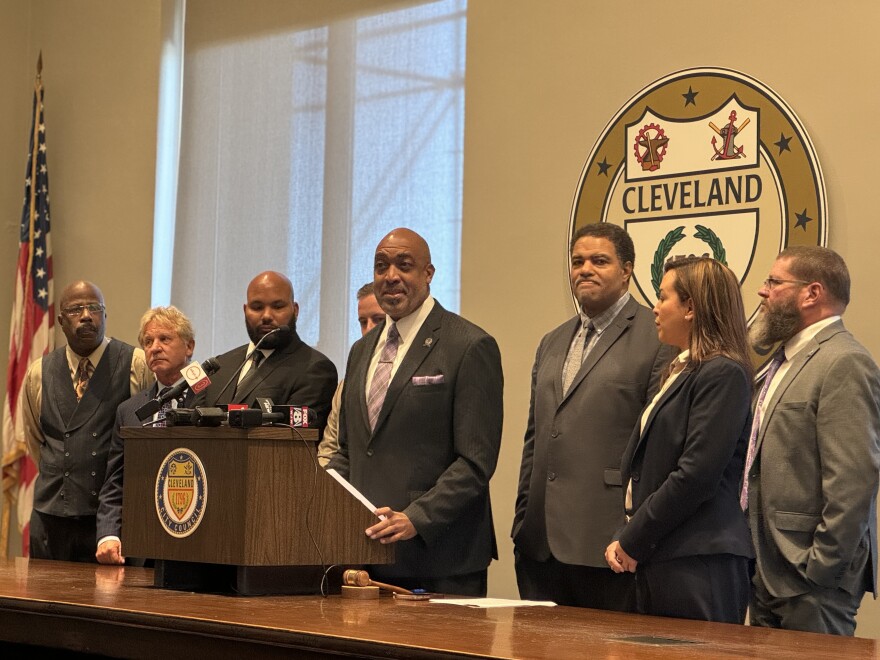Public safety, housing, federal stimulus dollars and redistricting are top of mind for Cleveland City Council's leadership as the legislative body returns from their summer recess.
Members began a Monday press conference with a victory lap to celebrate what Majority Leader Kerry McCormack called a "successful" previous session, which included passage of nearly 400 pieces of legislation that offered tens of millions of dollars in utility assistance, medical debt forgiveness and funding for recreational centers and parks.
McCormack represents Ward 3, which includes Ohio City, most of Downtown and Tremont and part of the Stockyards.
Most of those programs, however, relied heavily — if not entirely — on the city's pot of American Rescue Plan Act (ARPA) funds, federal stimulus dollars set up for pandemic recovery by President Joe Biden's administration. Those dollars need to be allocated by the end of 2024 and spent by the end of 2026 — meaning the body will soon face "tough belt-tightening" on a stressed budget, according to Council President Blaine Griffin.
ARPA oversight was one of the top four priorities laid out Monday by Griffin. At the top of the list was public safety, a topic which council and Mayor Justin Bibb's administration continue to raise the alarm on.
"Safety has to come first," Griffin said. "If our residents, businesses and visitors do not feel safe, then everything else we do will matter little in this community. Whether it's real or perceived, people have to feel safe in the city of Cleveland."
City Council approved a budget for 1,350 uniformed police officers last year — the second year in a row that number has shrunk. As of Friday, only 1,117 of those positions were filled.
"Many of us in some of the neighborhoods that we represent have never seen this amount of lawlessness and this amount of challenge to authority even when police do show up to the scene," Griffin said.
In addition to officer pay raises and other recruitment strategies, Griffin said council is also looking at other tools to fight crime, including police drones approved by council two years ago.
"We really want to see the drones get up in the air," he said. "We really want to make sure that we utilize that technology that we believe can give us a head up on dealing with crime and nuisance activity in the community."
Griffin also emphasized housing and homeownership in the city. Upcoming priorities include supporting down payment assistance for residents and gap financing opportunities for homeownership.
Redistricting maps expected by end of year
Griffin also gave an update on the city charter-mandated redistricting process, which must take place once a decade.
City Council will lose two of its 17 seats due to population loss. Griffin said he anticipates to release the new maps by the end of the year with the help of a consulting team.
"We hope to keep neighborhoods intact, more condensed, more equitable in having access to schools, libraries, recreation centers and other resources, and to use natural boundaries like rivers, railroads and lakes," he said.
It is yet to be determined which council members may face off in next year's elections and Griffin did not speak to any upcoming resignations or retirements.
City Council will host informational sessions to take resident input ahead of passage on those maps.



